Daphna Attias and Terry O’Donovan: If we can make people smile, laugh, cry, connect – it’s a privilege
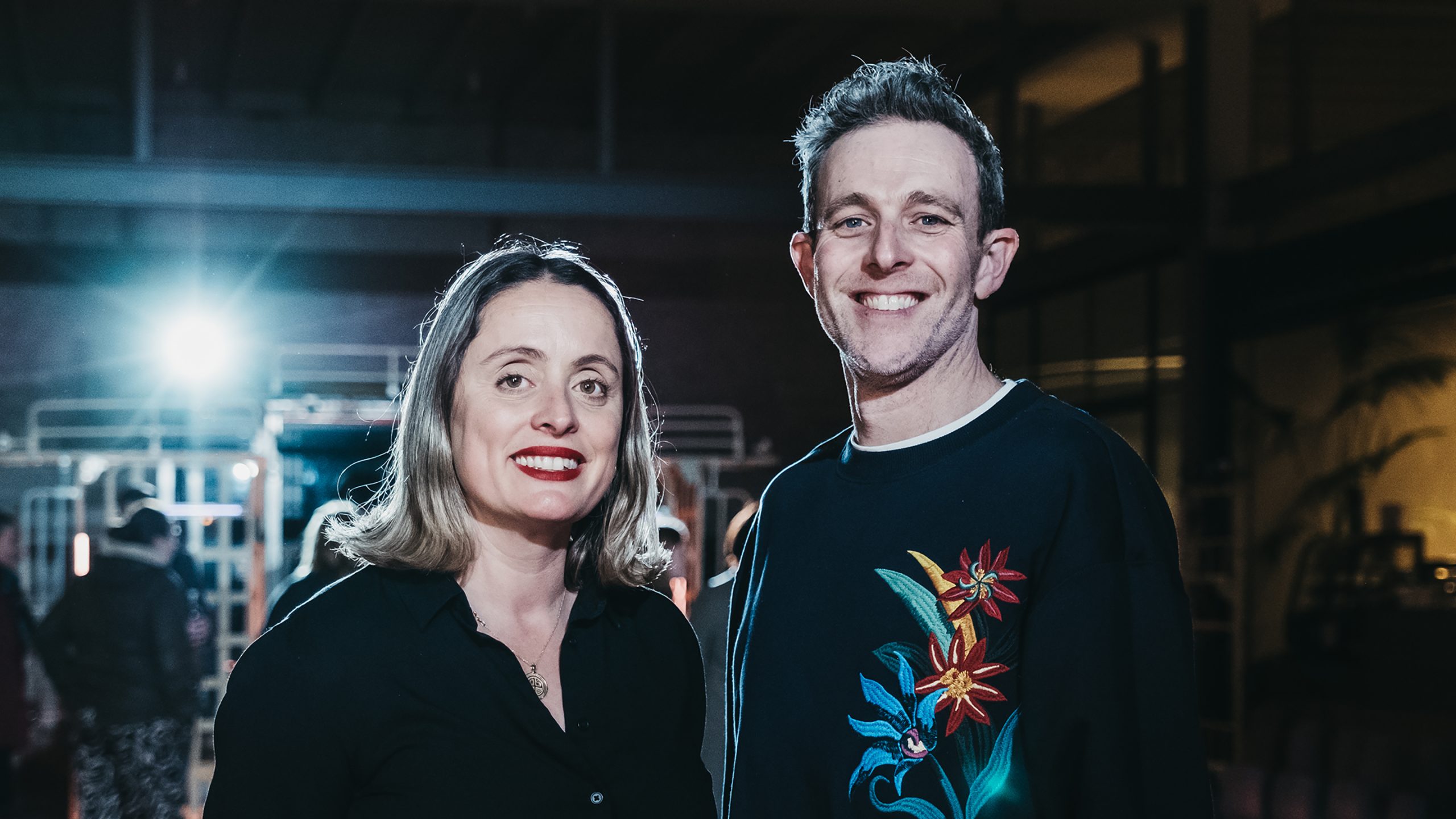
Image Credit: Daphna Attias (left) and Terry O’Donovan (right), Co-Artistic Directors of Dante or Die.
For two decades, Daphna Attias and Terry O’Donovan have been reshaping how theatre lives in the world. Their paths into performance began far apart – Daphna discovering the power of creativity and community through drama as a teenager, Terry finding belonging in 90s Ireland through music, youth theatre and cinema – but converged in London through a shared revelation: the experience of theatre could exist at anytime, anyplace, anywhere.
That spark became Dante or Die, founded in 2006, and over 20 years their collaboration has matured into one of the UK’s most distinctive site-specific practices – intimate, playful, emotionally precise, and deeply humane. As they reach this anniversary, their working relationship feels less like a fixed method and more like a conversation that keeps evolving with time, experience and trust.
That evolution is mirrored in I Do. First created in 2013, the multi-room wedding drama returns in 2026 changed by new life experience, new technology, and a world reshaped by crisis and connection alike. What remains constant is Dante or Die’s belief in closeness: strangers sharing space, stories unfolding inches away, humour and vulnerability holding hands.
I Do runs as part of the Barbican’s Scene Change season, showing at Malmaison London from 20 January – 8 February, with tickets available via the Barbican.
Let’s start with Daphna…
Before London, before site-specific mischief, before Dante or Die… take us back to teenage Daphna. What were the early seeds – the images, arguments, obsessions or rebellious thrills – that hinted you’d one day create theatre inside cafés, hotels and storage units?
It’s an interesting question. And because Dante Or Die is turning 20 this year I have been reflecting and remembering. I always loved theatre and somehow always hoped it would be my path. As a teenager I took part in so many drama classes and loved the feeling of creativity and community it offered me. But it wasn’t until 2004 when I discovered Site specific Theatre. That year Terry and I were doing the MA Advanced Theatre Practice at The Royal Central School of Speech and Drama and we had a Site specific task. We created a show in Kennington Park and something clicked for me. The understanding that theatre could exist everywhere. My biggest memories of that day are Terry in a big pink dress, and a piano we somehow dragged to the middle of the park. It was in that skate park we saw the graffiti of ‘Dante Or Die’ which not much later became our name.
I Do premiered in 2013; now it returns as part of the Barbican’s Scene Change season, marking Dante or Die’s 20th anniversary. When you step back into these six hotel rooms, what hits you hardest: how you have changed, how the world has changed, or how the work has changed?
Everything changed and nothing changed at the same time.
On a personal level, coming back to this show with more life experience and real personal research into relationships was super interesting. When Terry, Chloë and I created this 13 years ago we were at the beginning of relationships, I had just given birth, Terry just got married and Chloë was pregnant. A lot has changed since. We tried to keep the essence of the show but bring those changes into the script.
The world changed massively, especially around the way we are interacting with technology. I don’t think we realised just how much. When we returned to the script we were shocked. We had to take out a line that says something along the line of: ‘The kids got me an iPhone for Christmas, everyone has one these days.’ There was a chequebook and no dating apps!
In terms of the work itself. I hope the themes of the show and the form are still resonating. I am looking forward to discovering more in rehearsals with a new cast and seeing what they all have to bring to it.
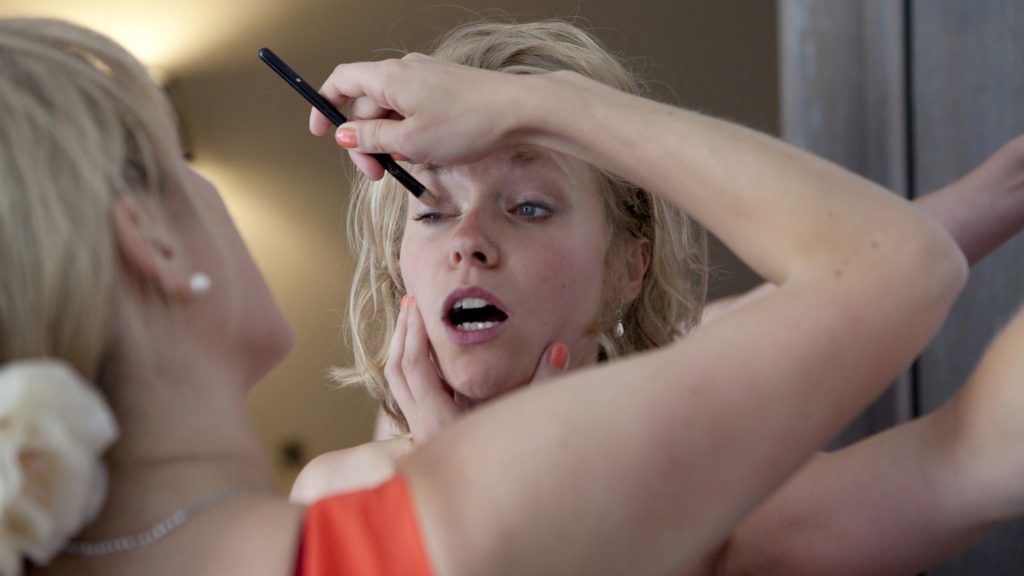
Image Credit: Production shot from ‘I Do’, next performed at Malmaison – London, Reading, and Manchester.
Your practice has always treated architecture as dramaturgy. In revisiting I Do, what new dramaturgical possibilities suddenly appeared – things your 2013 self might never have noticed? Has the past decade’s social upheaval (pandemic, Brexit, shifting identities) altered the emotional temperature of the rooms?
In 2013, I was still taking early steps into making shows in unusual places, trying to figure out how to crack open a space and make it theatrical. Since then we’ve created shows in self-storage buildings, cafes, leisure centres, shopping centres and it made me more attuned to what spaces hold. I think I now make less assumptions about how audiences will behave in a space. Hotels feel different post-pandemic. The idea of strangers sharing air, touching objects, witnessing intimacy, carries more weight now. All of that changes how bodies exist in rooms together. The architecture hasn’t changed, but our relationship to it has, and that creates new dramaturgy whether you plan it or not.
I Do is full of secrets, awkward tenderness, brittle joy and barely contained chaos. In 2026, what emotional truths feel sharper? And how has your sense of humour – both as an artist and as a human navigating the last decade – shaped the way you direct these characters now?
The vulnerability feels sharper. The fear underneath the jokes. I’m more compassionate now towards the characters and towards the messiness of being human. Things are funny when they ring true. I think when the show works it’s because of those moments that you don’t know if you should laugh or cry. And a lot is said in the pauses and silences. Our dramaturg Lucy Morisson always jokes that we like the underwritten scenes.
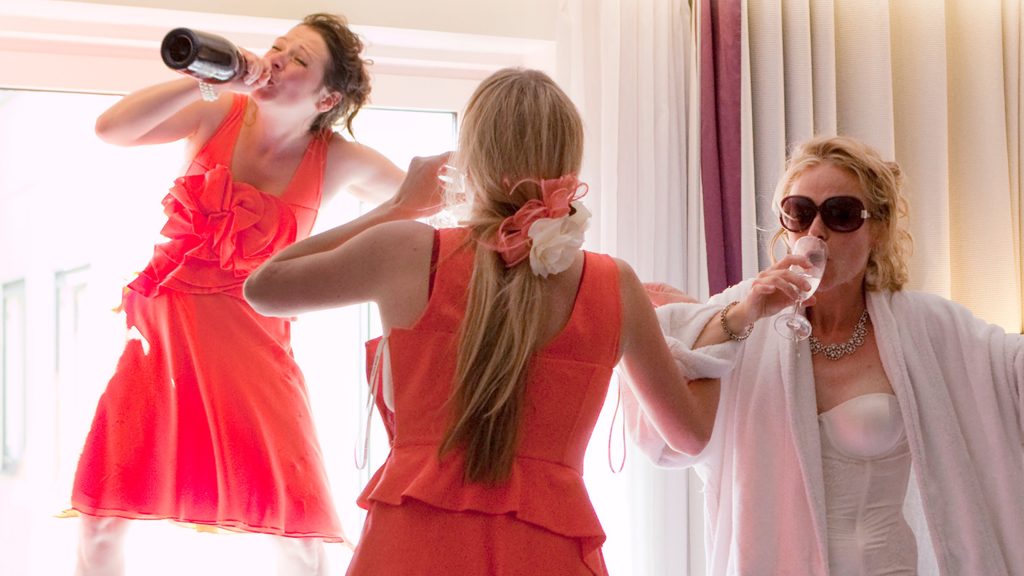
Image Credit: Production shot from ‘I Do’, next performed at Malmaison – London, Reading, and Manchester.
London has been your laboratory for 20 years. Which three venues, communities or scenes still feel like home – the places that keep you inspired, politically awake, and creatively brave?
I am not sure how to answer this question. London is a city that keeps surprising me. I love the Barbican and I am so honoured and proud that I Do is part of their programme. I also find Stone Nest, which has been our home for many years, always inspiring. I love swimming in the ponds, taking long walks in Hampstead Heath and I love that after 20 years I can still find places I haven’t been to.
Film Credit: Company reel for Dante or Die.
Enter Terry…
Take us back to 90s Ireland, before London and before the site-specific bug bit: what were the sparks – the music, the mischief, the friendships, the awkward teenage performances – that pointed you toward the kind of intimate, emotionally detailed performance you make today?
I’ve just put on the Baz Luhrmann Romeo + Juliet soundtrack to answer this question. I could write for hours about the amazing friends around me and the experiences I had that formed that time of my life. I found my tribe in weekly musical theatre classes that turned into an incredible bunch of friends from different schools around Limerick. We were all swapping CDs – a lot of film soundtracks, Alanis, The Cranberries, Radiohead – and I always kept a little time for Kylie. There were a lot of backstage romances – starting off with a first kiss when I was playing Aladdin in the local panto. We set up bands, travelled around the country on coaches to be part of street performances, being part of incredible professional productions produced by Limerick Youth Theatre. I was obsessed with the cinema and started writing short films. I was quietly finding ways to come out after years of being dragged down by the homophobic culture I’d grown up in – one of the first scripts I wrote was a coming out story – so I’d started to find a way to put my experiences into story. I had a small part in Angela’s Ashes after a long audition process to play the lead that gave me a taste of doing this showbiz-thing for real. That feels really far away from Dante’s work, but it was a huge confidence booster.
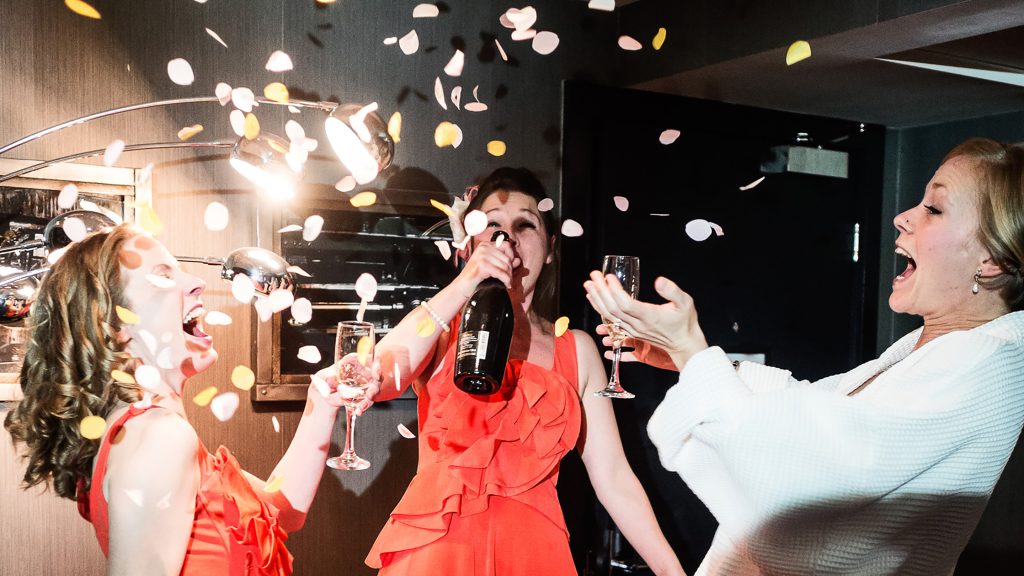
Image Credit: Production shot from ‘I Do’, next performed at Malmaison – London, Reading, and Manchester.
Stepping back inside I Do after 13 years, during Dante or Die’s 20th anniversary, how does performing these characters land differently on your present-day body and mind? What feels newly resonant – or newly vulnerable – in 2026?
Well, I’m performing a different part for 2026. I created the role of the best man and had an absolute ball performing it. I think I can still do the speech in my sleep. But when we began to plan the revival I said that it didn’t excite me to do the same part again. Plus, I’m a bit older now, so it makes way more sense for a younger actor to play the role.
So, I’m sharing the part of the cleaner with a young performer called Rowena. Our part is the only non-speaking role in the show. We are not part of the wedding party, we’re silent observers with a magical realism quality that affects the characters we bump into. I’m excited but really nervous. I haven’t performed for a few years – not since we did Skin Hunger in 2021. And the role is physical and logistically challenging – we appear in 5 of the 6 rooms so have a busy track. It’s vulnerable to be relying just on my body to tell the story; and I also have the original performer Anna Richmond in my head who was incredible.
You’ve spent two decades performing inches from audiences in unconventional spaces. In a time marked by digital addiction, social fragmentation and rising loneliness, does the intimacy of I Do feel more radical now than it did in 2013?
That’s a really interesting way to approach the intimacy of the work. We’ve become so used to intense intimacy through our phones that it may well take people aback to be so close to actual people. It feels like the live performance of theatre or a gig is even more vital than ever. I’ve made a conscious decision to turn my phone off completely during rehearsals cos I’ve noticed in recent rehearsal processes I end up keeping an eye on WhatsApp conversations, or being drawn into emails. I hope the immediacy of the work is something that can give people that thrill of being up close to real people. The emotional journey that they go on is both individual but shared very intimately with their group, which is a lot of fun.
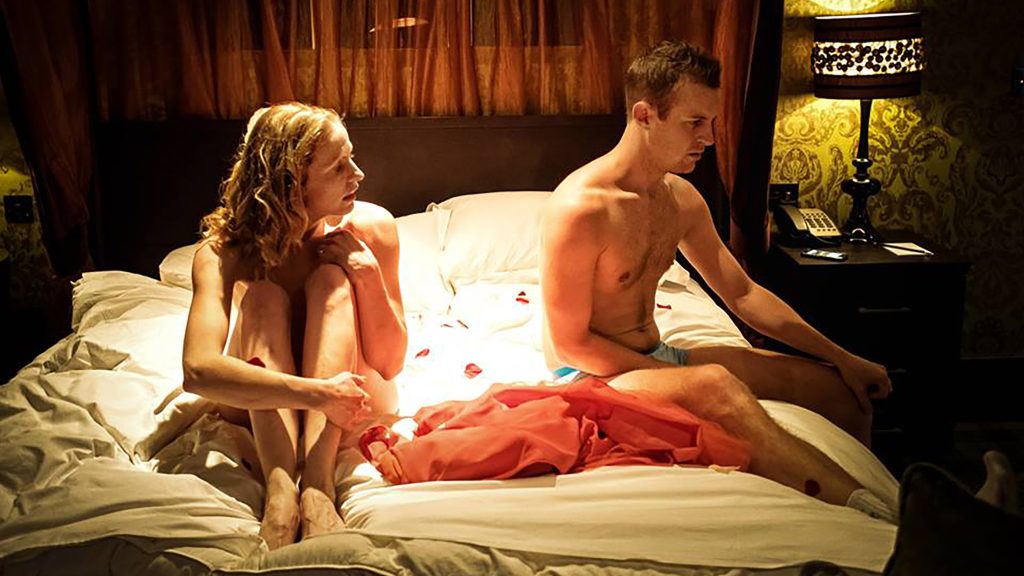
Image Credit: Production shot from ‘I Do’, next performed at Malmaison – London, Reading, and Manchester.
I Do has been described as ‘a celebration of the beautiful mess of human connection’. After everything the world has survived – and everything the arts continues to fight for – what feels beautiful to you now? And what still feels worth making a mess about?
Last year we made a performance in Thamesmead where we had performers dancing in a canal and singing from a clocktower. Rehearsing for that was beautiful because we made people smile everyday, and had the wonderful exchanges with people we would never meet otherwise, from so many walks of life. This is what we’re still fighting to do. Life is a challenge, with so much – if we can make people smile, laugh, cry, connect it’s a privilege.
I want to make a mess about the things I’m trying to understand around me. Some new strands of work will grapple with these questions – how did the AIDS crisis affect Irish people? Queer life is under attack again – how does looking at the past help us to understand how best how to fight? How does growing up with same sex parents affect how you feel about the world? How can I have progressive conversations with people putting up St George’s flags in their towns? Just a few messy things to look into.
After 20 years of building work across London, which three venues, communities or neighbourhood scenes do you consider your cultural home – the places you return to for energy, belonging or creative mischief?
For a cultural home I’d choose Greenwich & Docklands International Festival which is a bit of a cheat because it spans so many spaces. Every year they make London come alive in a way that’s always inspiring and surprising. I’ve been going to the Barbican since I arrived in UK in 2000. Their contemporary programme and the building itself is like a sanctuary. It’s a huge privilege to be part of it with ‘I Do’. Mischief is happening throughout the city all the time. I’d like to make a musical in the first London launderette which is in Bayswater. For memories of our early mischief making I head back to Kennington Park where the graffiti that says ‘Dante or Die’ is still on the skate park.
Daphna Attias and Terry O’Donovan are Co-Artistic Directors of Dante or Die, find them at danteordie.com
Dante or Die: I Do
Tue 20 Jan – Sun 8 Feb 2026
Malmaison Hotel, London
Tickets and and info via barbican.org.uk